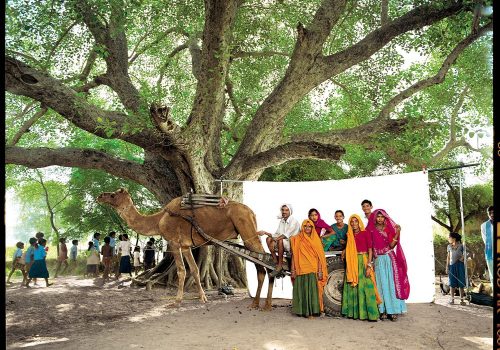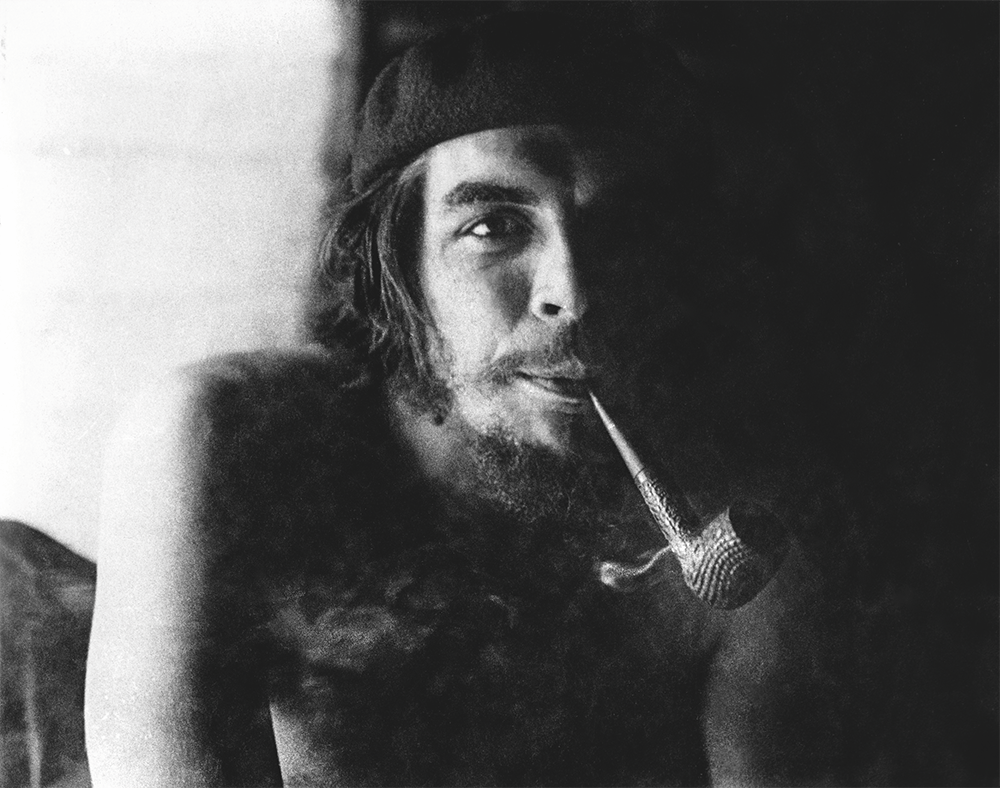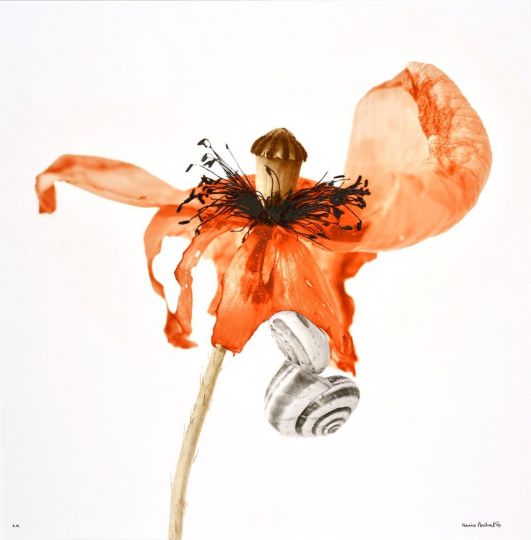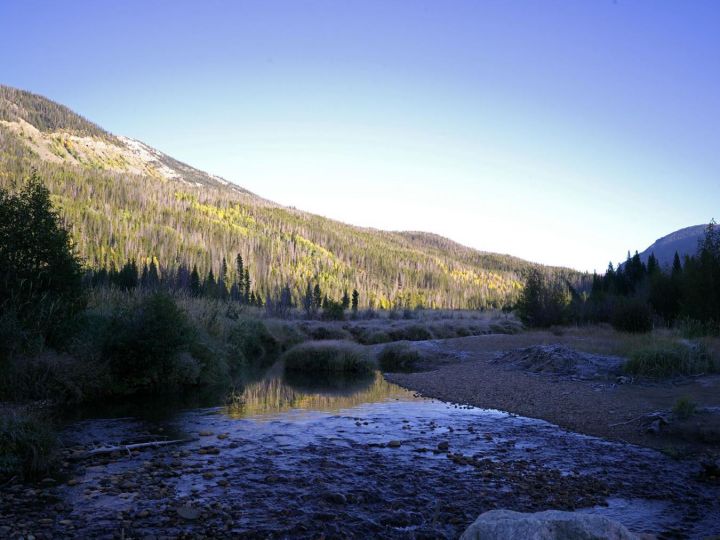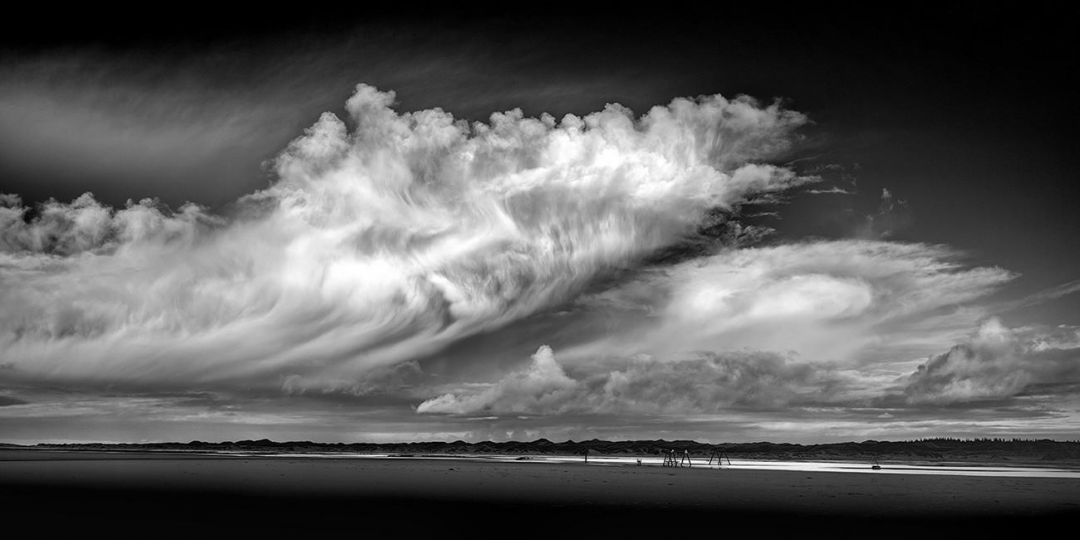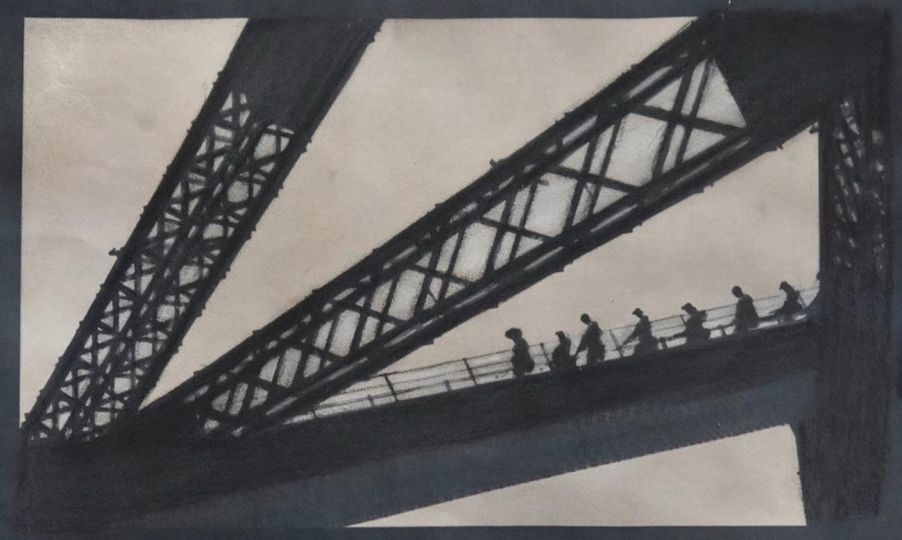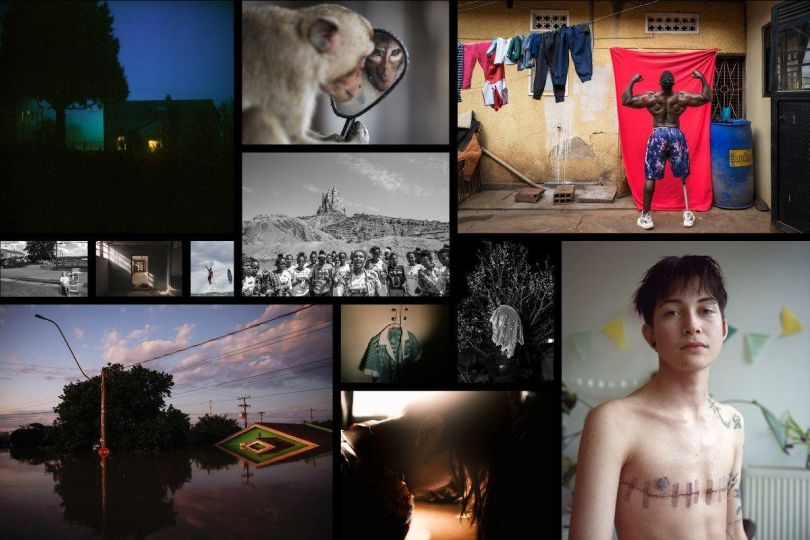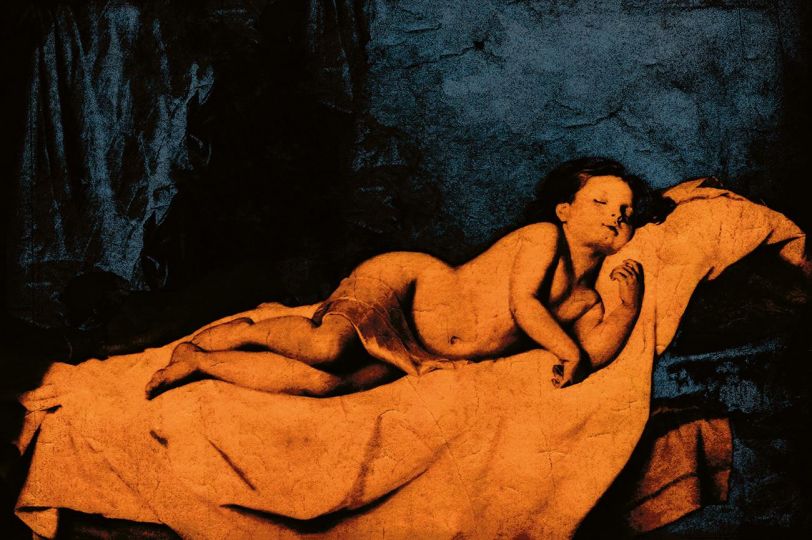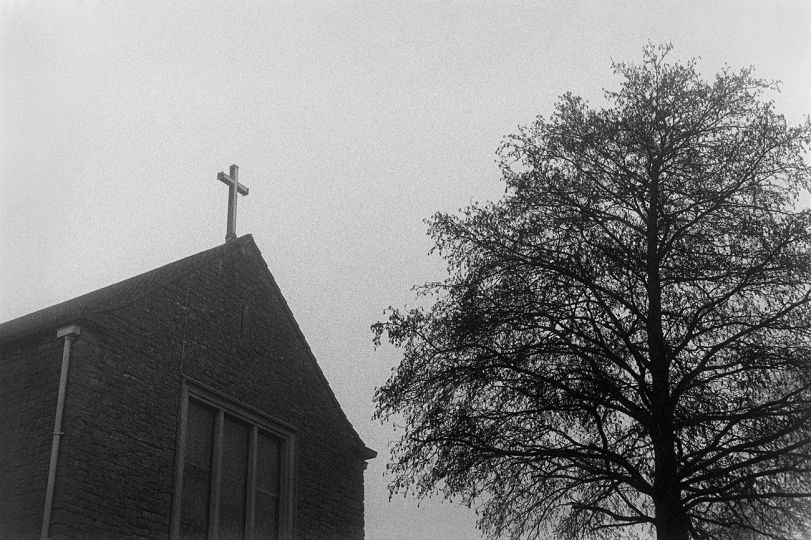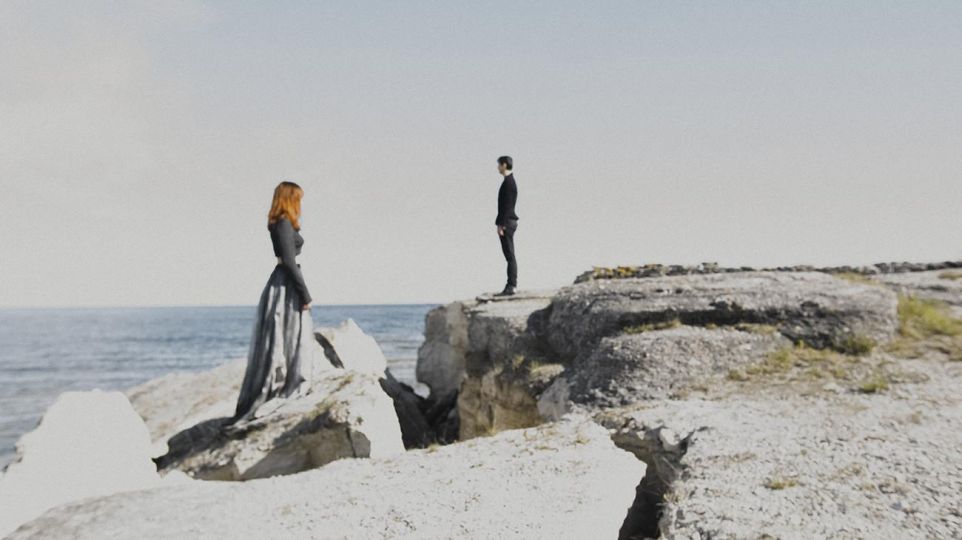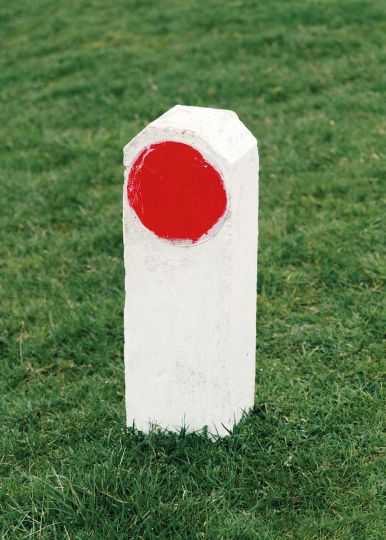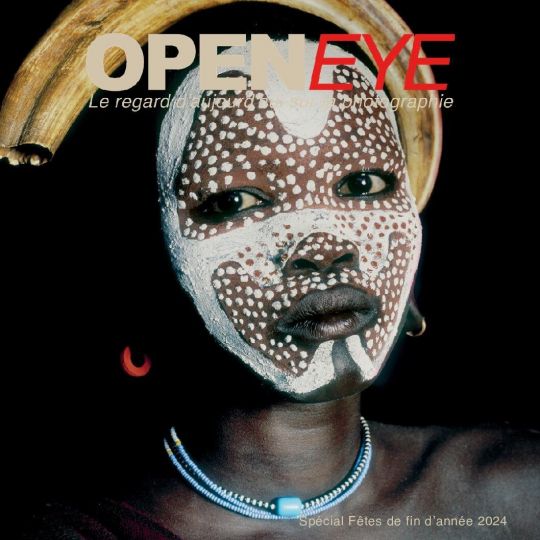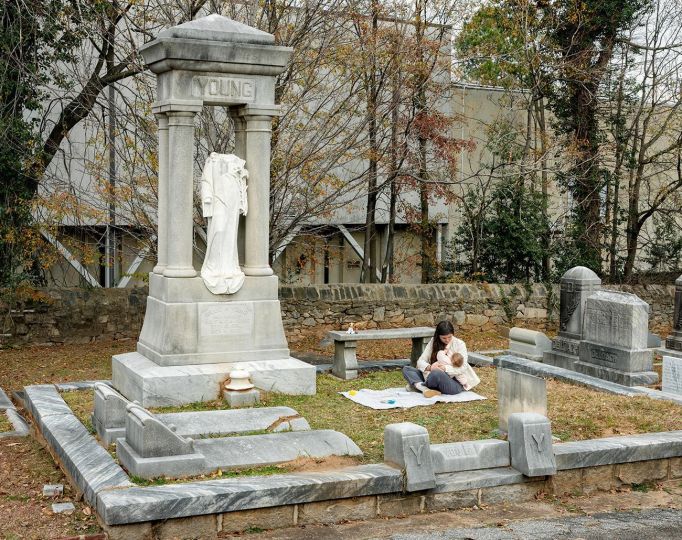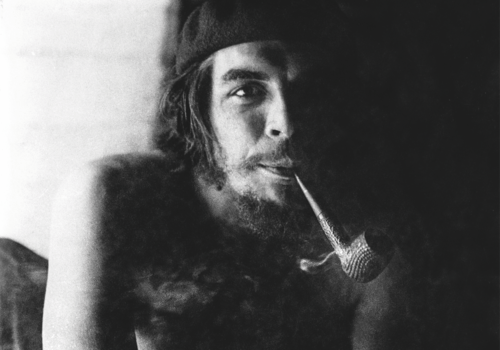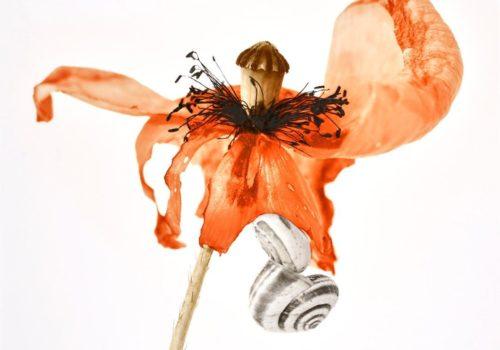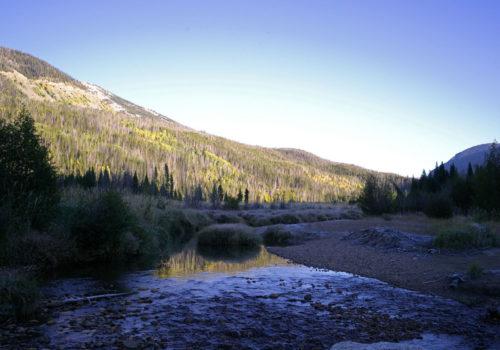Uwe Ommer took four years to build the largest, most beautiful kaleidoscope ever. A piece of ground-glass, a tube, a mirror, a lens, a bit of trickery; the system is rudimentary and we have marvelled at it for centuries. But, if it is magic, in fact what fascinates us is not the system, rather the infinite number of combinations that it allows from amazingly simple materials. Uwe Ommer gleaned these materials along the way, during his many encounters. The fact is, he was already acquainted with them before, he’s been photographing people for more than thirty years, and even before that, because it’s in his blood.
So he put, haphazardly, behind his ground-glass, everything that makes a family: children, veils, pierced noses, bare feet, black clothes, men’s hats, women’s hairstyles, fabric, dollars, moustaches, beards, domestic animals, dogs, cats, ponies, goats and elephants, guns, colours, dark, light-coloured, translucent, matt or shiny skins, a bit of polygamy, a touch of homosexuality, a good dose of heterosexuality, seeds of endogamy, powder of exogamy, cross-breeding, children, traditions, obscurantism, migrations, solitude, empty chairs, elongated necks, smiles, beauty, music and its instruments, still more elements and, above all, love, lots of love.
Now that you have the object in your hand, shake it a little, put your eye to the lens and turn it; you will see that in Uwe’s kaleidoscope, the world appears to you differently from what you imagined. You are going to stop thinking that you are different from those who are far from you or don’t share your culture or convictions. You are going to see how, in a thousand small details, we are so similar and yet so different, and this in an uncertain way, not as you’ve been taught up to now, on the basis of colour, language or religion. Look at the details, the expressions, the tenderness, the tiredness, the anxious or serene looks, the calloused, agile, damaged or cared-for hands, the wrinkles, the reserved words, the sketched smiles. Open your eyes and don’t let yourself be drawn to so-called evidence. That way you’ll play the game of relative difference and random similarity. It is very rewarding and it puts quite a lot of preconceived ideas in their place: back in the cupboard.
Uwe Ommer, with this titanic work done over four years opens our eyes to ourselves. He shines the light, beyond our divisions, our difficulties in living together, onto what is our best chance for continuing to live on this planet. He doesn’t photograph wars, mass graves, rapes, the immeasurable incapacity of men to be human, nor the fruits of our base instincts; he photographs what unites us, what allows us to continue, what exceeds our incomprehension of the world and others, love, which goes, even in an uncertain way, with desire, pleasure and happiness.
Look at the faces and you will rediscover a grandmother, a friend, an uncle among the people you thought were a thousand miles away. You will see how close we all are, alike and yet so different. This experience will teach us to look at other people through different eyes, and not get stuck on the accessory that stops us seeing by making things far too simple.
Look at all these details which create diversity rather than prejudices and barriers.
It took Uwe’s loving eye to make this portrait of humanity at the dawn of the new millennium. I’ve been turning Uwe’s kaleidoscope for four years now. I haven’t got tired of turning it, and every time I turn it, I’m the richer for it.
Olivier Delahaye
Olivier Delahaye is a writer, director, scriptwriter and producer. He lives and works in Paris.
Uwe Ommer, 1000 Families
Published by Taschen
20€

